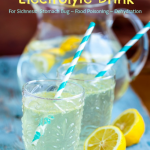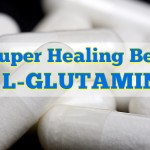Atherosclerosis (Hardening of the Arteries): Natural Treatment and Prevention
Hardening of the arteries, also called atherosclerosis, is a very common but serious condition that occurs when fat, cholesterol (lipids), and calcification gets deposited in the walls of arteries (blood vessels) and builds up there. These deposits are called plaques. Over time, these plaques can narrow or completely block the arteries which is a primary cause of heart attack or stroke (and other serious cardiovascular problems).
LDL Cholesterol plays a critical role in the pathogenesis of atherosclerosis. Atherosclerosis is defined by the American Heart Association as “the narrowing of the coronary arteries due to fatty buildups of plaque”. Research has shown that atherosclerosis is initiated by the presence of inflammation in blood vessels. Atherosclerosis eventually leads to coronary heart disease. It is the single leading cause of death in America today, and possibly world-wide.
Atherosclerosis is the major cause of heart attack and stroke, is a chronic arterial disease characterized by lipid deposition and inflammation in the vessel wall.
Hardening of the arteries often occurs with aging, though the process can begin as early as childhood. Its a progressive condition, so as you grow older, plaque buildup narrows your arteries and makes them stiffer, and this makes it harder to blood to flow through them freely. By the time you reach middle age or older, you may start to suffer the consequences of this disease that has been years, even decades, in the making.
Clots may form in these narrowed arteries and block blood flow. Pieces of plaque can also break off and move to smaller blood vessels, blocking them.
These blockages starve tissues of blood and oxygen. This can result in damage or tissue death. It is a common cause of heart attack and stroke.
High blood cholesterol levels can cause hardening of the arteries at a younger age. For many people, high cholesterol levels are due to a diet that is too high in saturated fats and trans fats. People in their 20s, 30s and 40s can suffer heart attacks or stroke as a result, but its more common as people get older (again, due to the cumulative affect over a lifetime).
 Other factors that can contribute to hardening of the arteries include:
Other factors that can contribute to hardening of the arteries include:
- Diabetes
- Family history of hardening of the arteries
- High blood pressure
- Lack of exercise
- Being overweight or obese
- Smoking
Symptoms
Hardening of the arteries does not cause symptoms until blood flow to part of the body becomes slowed or blocked. Sometimes the first symptom is a fatal heart attack or stroke. That’s why artherosclerosis is often referred to as “the silent killer”. It can be a ticking time bomb in your body that you have no awareness of whatsoever – until a life threatening or fatal event occurs.
If the arteries supplying the heart become narrow, blood flow can slow down or stop. This can cause chest pain (stable angina), shortness of breath, and other symptoms.
Narrowed or blocked arteries may also cause problems in the intestines, kidneys, legs, and brain (stroke and or dementia).
Exams and Tests
A health care provider will perform a physical exam and listen to the heart and lungs with a stethoscope. Hardening of the arteries can create a whooshing or blowing sound (“bruit”) over an artery.
All adults over the age of 18 should have their blood pressure checked every year . More frequent measurement may be needed for those with a history of high blood pressure readings or those with risk factors for high blood pressure.
Cholesterol testing is recommended in all adults. The major national guidelines differ on the suggested age to start testing.
- Screening should begin between ages 20 to 35 for men and ages 20 to 45 for women.
- Repeat testing is not needed for five years for most adults with normal cholesterol levels.
- Repeat testing may be needed if lifestyle changes occur, such as large increase in weight or a change in diet.
- More frequent testing is needed for adults with a history of high cholesterol, diabetes, kidney problems, heart disease, stroke, and other conditions
A number of imaging tests may be used to see how well blood moves through your arteries.
- Doppler tests that use ultrasound or sound waves
- Magnetic resonance arteriography (MRA), a special type of MRI scan
- Special CT scans called CT angiography
- Arteriograms or angiography that use x-rays and contrast material (sometimes called “dye”) to see the path of blood flow inside the arteries
Treatment
Lifestyle changes will reduce your risk of hardening of the arteries. Things you can do include:
- Quit smoking: This is the single most important change you can make to reduce your risk of heart disease and stroke.
- Avoid fatty foods: Eat well-balanced meals that are low in fat and cholesterol. Include several daily servings of fruits and vegetables. Adding fish to your diet at least twice a week may be helpful. However, do not eat fried fish.
- Limit how much alcohol you drink: Recommended limits are one drink a day for women, two a day for men.
- Get regular physical activity: Exercise with moderate intensity (such as brisk walking) 5 days a week for 30 minutes a day if you are at a healthy weight. For weight loss, exercise for 60 to 90 minutes a day. Talk to your provider before starting a new exercise plan, especially if you have been diagnosed with heart disease or you have ever had a heart attack.
 If your blood pressure is high, it is important for you to lower it and keep it under control.
If your blood pressure is high, it is important for you to lower it and keep it under control.
The goal of treatment is to reduce your blood pressure so that you have a lower risk of health problems caused by high blood pressure. You and your provider should set a blood pressure goal for you.
- Do not stop or change high blood pressure medicines without talking to your provider.
Your provider may want you to take medicine for abnormal cholesterol levels or for high blood pressure if lifestyle changes do not work. This will depend on:
- Your age
- The medicines you take
- Your risk of side effects from possible medicines
- Whether you have heart disease or other blood flow problems
- Whether you smoke or are overweight
- Whether you have diabetes or other heart disease risk factors
- Whether you have any other medical problems, such as kidney disease
Your provider may suggest taking aspirin or another medicine to help prevent blood clots from forming in your arteries. These medicines are called antiplatelet drugs. DO NOT take aspirin without first talking to your provider.
Losing weight if you are overweight and reducing blood sugar if you have diabetes or pre-diabetes can help reduce the risk of developing atherosclerosis.
Outlook (Prognosis)
Hardening of the arteries cannot be reversed once it has occurred. However, lifestyle changes and treating high cholesterol levels can prevent or slow the process from becoming worse. This can help reduce the chances of having a heart attack and stroke as a result of atherosclerosis.
Possible Complications
In some cases, the plaque is part of a process that causes a weakening of the wall of an artery. This can lead to a bulge in an artery called an aneurysm. Aneurysms can break open (rupture). This causes bleeding that can be life threatening.
Lifestyle and Natural Treatments
Lifestyle changes can help you prevent or slow the progression of atherosclerosis.
- Stop smoking. Smoking damages your arteries.
- Exercise most days of the week. Regular exercise can condition your muscles to use oxygen more efficiently. Physical activity can also improve circulation and promote development of new blood vessels that form a natural bypass around obstructions (collateral vessels). Exercise helps lower blood pressure and reduces your risk of diabetes. Aim to exercise at least 30 minutes most days of the week. If you can’t fit it all into one session, try breaking it up into 10-minute intervals.You can take the stairs instead of the elevator, walk around the block during your lunch hour, or do some situps or pushups while watching television.
- Eat healthy foods. A heart-healthy diet based on fruits, vegetables and whole grains — and low in refined carbohydrates, sugars, saturated fat and sodium — can help you control your weight, blood pressure, cholesterol and blood sugar. Try substituting whole-grain bread in place of white bread; grabbing an apple, a banana or carrot sticks as a snack; and reading nutrition labels as a guide to controlling the amount of salt and fat you eat. Use monounsaturated fats, such as olive oil, and reduce or eliminate sugar and sugar substitutes.
- Lose extra pounds and maintain a healthy weight. If you’re overweight, losing as few as 5 to 10 pounds (about 2.3 to 4.5 kilograms) can help reduce your risk of high blood pressure and high cholesterol, two of the major risk factors for developing atherosclerosis. Losing weight helps reduce your risk of diabetes or control your condition if you already have diabetes.
- Manage stress. Reduce stress as much as possible. Practice healthy techniques for managing stress, such as muscle relaxation and deep breathing.
If you have high cholesterol, high blood pressure, diabetes or another chronic disease, work with your doctor to manage the condition and promote overall health.
Alternative medicine
My List:
CoQ10
Arginine
Citrulline
Serrepeptase
Grapeseed Extract
Curcumin
Vinpocotein
Coconut Oil
Olive Oil
Proline/Lysine
Astralagus
Vitamin C
B Vitamins
Folic Acid
Vitamin E + Selenium
Astralagus
Taurine
Spirulina
Garlic
Pomegramite
Fish oil (prevents blood clots)
Vitamin C (prevents blood clots)
Blueberry (prevents blood clots)
Beet Juice (prevents blood clots)
Taurine
Taurine is an amino acid, available in supplement form, which has powerfully beneficial effects on the heart and blood vessels as reported in Life Extension Magazine. Studies show that people with higher levels of taurine have significantly lower rates of dying from coronary heart disease. They also have lower body mass index, lower blood pressure, and lower levels of dangerous lipids. Taurine has very beneficial effects on the heart and blood vessels. In animal studies, taurine was shown to lower blood pressure by reducing the resistance to blood flow in the blood vessel walls and by minimizing nerve impulses in the brain that drive blood pressure up. Taking taurine supplments has been found to reduce the arterial thickening and stiffness characteristic of atherosclerosis, to restore arteries’ responses to beneficial endothelial nitric oxide, and to reduce inflammation (a direct contributor to cardiovascular disease).A study of patients needing coronary bypass surgery showed that consuming a liquid drink containing 3 grams of taurine, combined with 3 grams carnitine, 150 mg CoQ10, and basic multivitamin nutrients, reduced left-sided ventricular volume during the heart’s resting phase (diastole). This is important since an increased left-ventricular diastolic volume is the single greatest predictor of death in patients requiring bypass or stent placements. This makes taurine a vital component of such patients’ diets.
Vinpocetine
Vinpocetine has long been used as an effective cerebral blood flow enhancer for treating cognitive impairment and memory problems. Recent studies indicate that vinpocetine is a potent anti-inflammatory agent, and inflammation is a direct contributor to cardiovascular disease. In a recent study, vinpocetine significantly reduced atherosclerotic lesion formation in mice fed with a high-fat diet. The data revealed a novel role of vinpocetine in reduction of pathogenesis of atherosclerosis. “Given the excellent safety profile of vinpocetine”, said the researchers, “this study suggests vinpocetine may be a therapeutic candidate for treating atherosclerosis”.
Folic Acid
Research suggests folic acid (a B vitamin) at 400 mcg daily (the recommended daily dosage) may help those with risk factors for atherosclerosis. However, it is not helpful for those who already have atherosclerosis/cardiovascular disease – 3 previous studies found no benefit of folic acid supplementation for those with established cardiovascular disease (7, 8, 9). Low-dose folic acid supplementation has a beneficial effect on blood lipids through decreasing concentrations of total cholesterol and decreasing homocysteine levels (elevated levels of which are suggested to increase the risk of cardiovascular disease). This study found an important association between folic acid and lowered risk of cardiovascular disease, however, the one flaw with the study is that it did not have a control group, so further research is warranted to confirm these promising findings. Another study in Peking China published its results in the prestigious journal Atherosclerosis showing that daily supplementation with folic acid reduces hardening of the arteries to counter the development of atherosclerosis. The study found that higher levels of folic acid were consistently associated with a significantly reduced thickening of arterial walls, a marker of atherosclerosis. The findings supported existing data that folic acid provides potent heart health benefits, and supplementation was associated with less hardening of the arterial walls. The study authors noted that the highest degree of protection was found in people with the largest reduction in homocysteine levels. This conclusion clearly shows that reducing the deadly homocysteine amino acid reduces risk of both stroke and heart disease. The scientists found that daily supplementation with 5 mg of folic acid lowered homocysteine levels by 25 percent, providing a powerful shield against heart disease. The authors concluded “Folic acid supplementation results in significant CIMT (carotid intima-media thickness, a measure of arterial wall thickness) reduction after 18 months in patients with at least one cardiovascular risk.” Nutrition experts recommend taking a full-spectrum vitamin B supplement (providing a minimum of 500 mcg folic acid and 300 mcg B12) along with trimethylglycine (500 to 1,000 mg per day) to lower elevated homocysteine levels and dramatically lower stroke and vascular disease risks.
- Alpha-linolenic acid (ALA)
- Barley
- Beta-sitosterol (found in oral supplements and some margarines, such as Promise Activ)
- Black tea
- Blond psyllium (found in seed husk and products such as Metamucil)
- Calcium
- Cocoa
- Cod liver oil
- Coenzyme Q10
- Fish oil
- Folic acid
- Garlic
- Green tea
- Oat bran (found in oatmeal and whole oats)
- Sitostanol (found in oral supplements and some margarines, such as Benecol)
- Vitamin C
- Aspirin is often routinely used by persons with established arteriosclerosis of any arteries and in individuals at high risk (by risk factor analysis) for arteriosclerosis. Aspirin inhibits sticky platelets floating in the blood from starting a blood clot, and final blockage of a narrowed, plaque-filled artery. You may only need to take a baby aspirin (81mg) a day. Do not begin aspirin therapy without first consulting with your doctor. While Aspirin may reduce the risk of heart attack and some strokes, it increases the risk of stroke caused by bleeding in the brain and also puts you at risk of serious GI bleeds, so the risks must be evaluated by a doctor. If you have a bleeding or clotting disorder, or are already on blood thinners, Aspirin could be particularly risky. If your doctor has not instructed you to take daily aspirin, natural alternatives which lower the risk of dangerous blood clots, but don’t present the same risk of uncontrolled bleeding may be the better option for you if you are interested in prevention. Arginine is one such potential alternative.
Talk to your doctor before adding any of these supplements to your atherosclerosis treatment. Some supplements can interact with medications







Leave a Reply